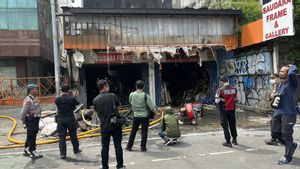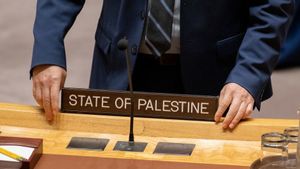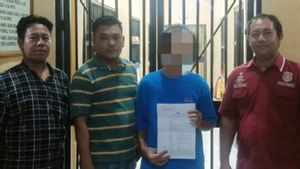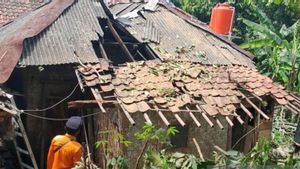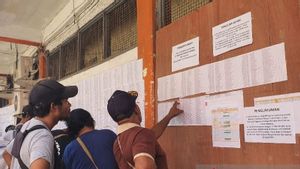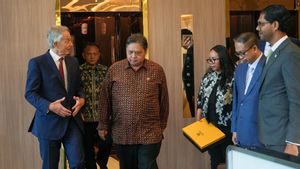
JAKARTA - The government through the Director-General of Politics and General Government of the Ministry of Home Affairs, Bahtiar still wants to carry out the rules in Law Number 1 of 2015 concerning the regional head elections (Pilkada) which has determined that elections will be held simultaneously in 2024. The government does not have an Election Bill (RUU) that normalizes the 2017 Pilkada continued into 2022 and the 2018 Pilkada will be continued in 2023.
"We believe the regional head elections Law should be implemented first. There are objectives to be achieved for why the regional head elections is concurrent in 2024. Let us carry out the existing laws in accordance with the mandate of the Law, Law Number 10 of 2016 Article 201 paragraph 8, the regional head elections will be carried out simultaneously in 2024", said Bahtiar, some time ago.
A political observer from the Voxpol survey institute, Pangi Syarwi Chaniago, questioned the government's original intention to hold elections simultaneously with the intention of being an effort to efficiency and effectiveness in the process.
However, he reminded that if the elections that were held simultaneously, such as the 2019 Election, will create new problems.
"The simultaneous elections all this time have brought new problems that are more complicated and complex. In my opinion, the government is plagued by amnesia, why so quickly forget the arguments they used to insist on carrying out the last year's regional elections?", said Pangi to VOI, Monday, February 1.
As a reminder, various problems in the implementation of the 2019 Election are the number of polling group officials (KPPS) who have died.
The data from the General Election Commission at the end of 2019, a total of 894 officers died and 5,175 officers experienced illness. The Ministry of Health also had recorded that 527 General Election Commission officers died as of May 16, 2019.
A number of academics from Gadjah Mada University (UGM) had investigated the cause of a number of the Voting Organizing Group officers who were sick and died. As a result, they died because their condition was not healthy. Don't forget about the workload experienced during the process of holding the 2019 Election so that your physical condition has decreased.
According to the Gadjah Mada University research team, the cause of the death was thought to be due to a history of cardiovascular disease, the average workload of the Voting Organizing Group officers was very high, there were obstacles related to Technical Guidance and logistics, as well as the impact of too high workload and previous disease history.
Because normal people work 8 hours per day. After the Constitutional Court's decision on the implementation of the 2019 Election, the workload of the Voting Organizing Group and supervisors has doubled, from morning to past 12 at night.
"The wave of protests over the simultaneous elections was heard from the start, the peak of the 2019 Election which claimed many of the Voting Organizing Group officers who died, should not be repeated via the revision of the election law", said Pangi.
"If the government continues to insist on refusing to revise the electoral law, especially in connection with this concurrency, the public should be suspicious of what interests are they fighting for", he added
The English, Chinese, Japanese, Arabic, and French versions are automatically generated by the AI. So there may still be inaccuracies in translating, please always see Indonesian as our main language. (system supported by DigitalSiber.id)



